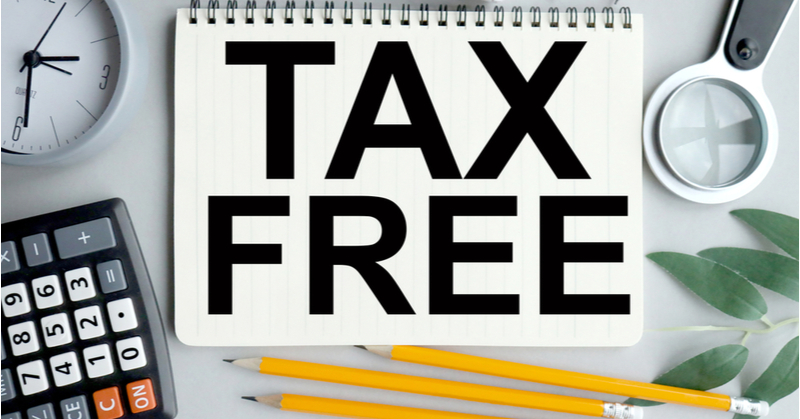When it comes to sales tax holidays or tax-free weekends, consumers are often counting down the days to when they arrive. However, retailers’ tax and IT departments are likely not as excited.
Retailers need to carefully monitor tax holiday rules in each jurisdiction where they have sales tax collection and remittance requirements, which became exponentially more challenging as states have adopted economic nexus requirements following South Dakota v. Wayfair, Inc. Accurately applying sales tax before, during and after a sales tax holiday can take a lot of time, energy and resources, especially because local areas can send a notification of participation just days before the holiday starts.
Online retailers selling a diverse product portfolio to customers across the country feel the extra burden that sales tax holidays can bring. There is no uniformity in exemptions from state to state, even when the holiday has a similar focus (e.g., “Back to School”) meaning online retailers have the added task of familiarizing themselves with individual state rules to remain compliant.
Do any of your clients operate in states that offer sales tax holidays? When do these sales tax holidays normally occur? How does the list of eligible products change or evolve each year?
Stay vigilant on sales tax holiday details
To stay sales tax holiday compliant, retailers must consider three important factors for each holiday:
- When does the holiday begin and end?
- What products are eligible for a holiday exemption?
- What is the applicable price threshold over which the holiday exemption ceases to apply?
If this were not enough, things can get particularly challenging when a state applies different exclusionary price thresholds to different eligible products. For example, a state offering a “back to school” holiday that includes clothing and computer supplies could apply a $50 threshold for clothing and a $1,000 threshold for computers.
As of May 2021, 17 states and Puerto Rico have sales tax holidays at varying points throughout the year. While nearly half of these are located in the Southern part of the U.S., states in all areas of the country will offer a temporary tax holiday exemption, including but not limited to Connecticut, Iowa and Massachusetts.
In looking at a list of sales tax holidays, it becomes abundantly clear that holidays relating to “Back to School,” “Energy Efficient,” and “Emergency Preparedness” items are extremely common. The Second Amendment holiday in Louisiana and Mississippi is less common but not unprecedented. Massachusetts, and sometimes Louisiana, offer “all inclusive” holidays where almost every article of “tangible property” is eligible for an exemption. While the most common definition of tangible property includes anything that can be seen, weighed, felt or measured, consumers shouldn’t plan on saving big by buying a car or a boat - as those items are not eligible.
The majority of sales tax holidays take place in July and August but they can also occur in the winter or spring months. Back-to-school items tend to be tax free in August, but Puerto Rico sells school supplies tax free in January as well. Additionally, Maryland has a sales tax holiday for Energy Star items over one February weekend, while Missouri sells those same types of items tax free for one week in April.
Check out a complete list of 2021 sales tax holidays here.
Retailers also need to continuously monitor sales tax holidays because they might not stay the same from one year to the next. For example, Florida typically offers sales tax holidays for back-to-school items and disaster preparedness, but a third holiday was added in 2021, called “Freedom Week”. Consumers can purchase admissions to music events, sporting events, cultural events, specified performances, movies, museums, state park annual passes, and fitness facilities tax free. Additionally, sales of boating and water activity supplies, camping supplies, fishing supplies, general outdoor supplies, and sports equipment are also included.
Even if retailers are dealing with a holiday that consistently recurs each year, states will sometimes release new guidance that changes the list of eligible items. Some states provide “all inclusive” lists of eligible items while other states provide examples of eligible items. In either case, those lists can change and you won’t see those changes unless you’re looking.
No matter when sales tax holidays happen, they can bring complications to retailers. With tax departments filing monthly, quarterly, annually or even semiannually, it can quickly become overwhelming to sort through the sales tax details alone. Retailers’ tax and IT departments must remain vigilant and ensure their systems are able to adjust as necessary to correctly charge tax. An organization’s sales associates also must know all of a state’s sales tax holiday details so they can process each transaction correctly.
It’s important for accountants and bookkeepers to be able to have a seamless way to account for changes should the organization be audited later.
Sales tax holidays can help consumers save, but your clients could be the ones paying the price.
.png?width=150&height=63&name=TWRlogo-regmark_blueblack%20(1).png)
.png)










Do you have questions about this article? Email us and let us know > info@woodard.com
Comments: